You’re a good friend because you’re looking for an answer on what to do for a friend going through a hard time; if you weren’t, you wouldn’t be here.

What To Do For A Friend Going Through A Hard Time
You wouldn’t be trying to understand how to be a person your friend can rely on.
Supporting a friend during challenging times is an act of compassion that can make a world of difference.
When someone we care about is facing a difficult period in their life, it’s natural to want to offer comfort and support. But it can be challenging to do as most people are not equipped for that as no one taught them, so it’s understandable if you’ve made mistakes or if you’re unclear of how to approach this the right way.
To help you navigate this, I wrote these 8 tips that you should follow to be spot on. You’ll be as helpful as you can be, and you’ll ensure that your friend who is going through a hard time has a listening ear and the helping hand they need.
Additionally, near the conclusion of this post I’ve included some gift suggestions so try to stick with it ’till the end.
We can start with the first tip right away.
This post has affiliate links which means that we make a commission from qualifying purchases at no additional cost to you. For more information read our Affiliate disclosure.
Note: Although I am a Clinical Social Worker, engaging with this website does not establish a professional social worker-client relationship. The information provided here is for general purposes only and should not be considered professional advice. While we strive to ensure accuracy and reliability, this content is not a substitute for professional guidance. For specific concerns, issues, or situations, it is essential to consult a qualified professional and present your situation. Read the full Disclaimer here.
WHAT TO DO FOR A FRIEND GOING THROUGH A HARD TIME

#1 BE THERE FOR THEM
You can offer to be there for them physically at their convenience, or you can be in touch regularly to provide emotional support and kind words of encouragement.
Physical proximity and physical touch go a long way, are soothing, and can heal.
However, depending on your or their life circumstances, this may be challenging to do, and that’s alright.
Because just by checking up on them and having conversations where you’ll give them enough space to express how they feel and what they think about, you’ll be very helpful and thoughtful.
So, as you can see, the most important thing is how you’re showing up for them—if you are empathizing with their emotions and decentering from your position to be able to think from the position they are currently in.
Many people believe that it’s enough to just empathize or be able to anticipate how they feel.
But it’s equally important to be able to decenter from your position and try to understand how they think—their reasoning from the place where they are.
I’ll say more about this later in the post.
We can move to the next thing you can do for a friend going through a hard time now.
YOU MAY ALSO LIKE:
#2 OFFER EMOTIONAL SUPPORT AND UNDERSTANDING WITHOUT OFFERING UNSOLICITED FIXES AND SOLUTIONS
Suggesting solutions and trying to fix things isn’t bad by nature. But the problem is that by doing this, you aren’t holding the space for them where they can express their emotions, which are difficult, painful, and unpleasant.
By not being able to restrain yourself from fixing, you’re showing that you can’t handle the discomfort that difficult emotions bring, and by not letting them express them, you’re sending a message to them that it’s not acceptable or safe if they show how they really feel in front of you.
Now, it’s totally different if they show you or tell you that they would appreciate suggestions and fixes.

Then you can use your brain power or your experience to try to help them work something out.
So, it’s better to test the temperature and feel the pulse of things, and then see what’s best to do.
In any case, it’s essential that you offer your emotional support, as well as that you’ll be open and receptive to them being vulnerable and emotional with you.
Of course, this doesn’t mean you should let them be exploitative of you; just be open enough that they don’t feel judged and unsupported when they want to show how they really feel and how it actually is for them.
You may want to read later:
As well as:
#3 ASK THEM WHAT THEY NEED AND ACKNOWLEDGE IT
It’s easier to ask your friend who is going through a hard time what they need instead of guessing or assuming things.
This is especially important when the situation is complex or delicate.
When this is the case, it’s risky if you assume what they need and act on it.
Especially if you’re not really skilled at offering psychosocial support.
If you are, that’s much better, and you stand a better chance of meeting their needs, but even then, it’s much better if you ask what they need and how you can help best.
For example, I’m equipped to offer psychosocial support, but it’s still a non-negotiable for me, plus I’m obligated to enable participation in that way.
(All people have the right to participate and express their views, which will be taken into account when making decisions about their situation unless it’s been proven that they lack the mental ability to make a decision. Even if they can’t do this, they can still express their views.)
People usually know what they need, and if they don’t, they at least know what they don’t need and don’t want.
So first, make sure that you get the right information from them and acknowledge this.
You can do it by using their own words to confirm whether you’ve understood them correctly, by paraphrasing their words, and asking them to affirm if you got it right.
The most important thing here is that by asking about what they need, you’re:
- acknowledging their position,
- being careful and attentive enough, and
- giving them a chance to have their needs met in the best possible way.
If you assume and guess, there’s also a possibility that you’ll get it wrong in a way that you’ll make the situation worse, so it’s better to be safe and sound in these types of situations.
3 Biggest Mistakes With Self-acceptance

#4 BE FLEXIBLE
By this, I mean adapting to fit their schedule more than usual and flexibilizing your demands so that you don’t overburden them with requests that they can’t respond to now that they’re going through a hard time.
Plus, it’s important that you don’t focus on how they’re not doing everything that you’re able to do but to be there for them even if they can give very little at this moment.
Especially if you can see that they’re trying and doing their best.
When someone is having a hard time, their energy level can be different than usual. But they may also desire to spend some time in solitude and be uninterrupted so that they can process their emotions.
So it’s important to be flexible enough to be able to understand that they may have different needs than you would have if you were in a similar position.
We are different, and this is expected, so don’t take things personally.
Just offer your help and tell them that you’re available to be there for them in whatever way they need you. And that you can adapt to meet their needs now that times are tough for them.
#5 TRY TO THINK FROM THEIR POINT OF VIEW
I mentioned this before when I talked about being there for a friend who is having a hard time. And I said that this is essential if you want to show true support.
The thing is, many of our relationship problems come from our inability to think from a different perspective than our own.
The one that we’re currently in because we picture how we would approach things if we were ourselves (in our position or our conditions) but not how we would if we were the other person.

And the trick here is that we often believe we are thoughtful and that we’re understanding enough. But the problem is that we’re often still thinking from our own “safe” position because we’re not affected by this problem.
And it’s hard to imagine how it would be if we hadn’t experienced anything similar before.
For example, if the neighborhood, country, or world is a safe place for one group of people, it is very difficult for them to imagine how it is for those for whom the world is not as safe or is dangerous.
Additionally, we may have a hard time removing ourselves from the picture when we think about the other person if we’re focused on ourselves a lot.
So remove yourself entirely from the picture and really try to think from their position, regardless of how you would think and resonate.
If you found the information on the blog helpful & inspirational and you feel like giving back, you can do it by clicking the donate button after entering amount you’re comfortable with. I’ll use it to create and deliver more useful content and resources like this. Thanks for your precious contribution!
#6 OFFER TO TAKE SOMETHING OFF THEIR PLATE
Depending on the reasons why your friend is having a hard time, it may be more or less convenient and helpful if you were to take something off their plate.
This can be more technical by nature, which is usually the easiest to get done. Or it can be that they need help figuring things out or fixing a problem.
Now, regardless of their nature, it would be best if you were:
- careful not to impose anything on them,
- rather subtle, gentle, and overall helpful,
- focused on responding to what they need and not to what you would need if you were them or what you need now.
You may need to feel useful, and this is understandable.
But you have to understand that their needs come before yours in these types of situations, so avoid trying to give unsolicited advice or service.
Therefore, the best way to approach this is to ask them to think about what they could delegate to you and get back to you if they don’t have an immediate answer.
Even if they’re resisting the offer, you can just say that you understand, that you’re not trying to take the power away from them, and that you know that they are capable of doing it all. But that they don’t have to, and that they can count on you to take something off their plate.
You may be interested in reading:
#7 GIVE THEM SOME SPACE TO WORK THROUGH THINGS
When there are difficult life situations and conditions that people experience even after you’ve offered your help and they’ve received your support, it’s important to understand that things take time to work, if they even get to work.
You need to be prepared for this, because just because someone can’t or won’t do things as you expected them to, that doesn’t mean that it was wrong of you to put in the effort.
What many people fail to comprehend is that you have to leave it to those to whom you have provided your help to decide for themselves and not try to eliminate the risks they are willing to take.
This applies to all—even children, older adults, people with mental illnesses, people with disabilities, and people deprived of legal capacity.
Moreover, it’s even more important that these people aren’t denied their power and left without the opportunity to make decisions based on information.
So, you have to be able to recognize if your criteria or expectations are too high or if you’re not being flexible enough to let them do things their way, even if you have been of great help and done so much for them.

It’s very hard to put ourselves in someone else’s shoes when they’re affected by hard life circumstances.
And very often we believe that we could do things differently and better, but the fact is that we don’t know what it would be like for us because we’re not really there.
We didn’t really experience this.
Plus, it’s very hard to imagine how it would be for us after we have been affected by these problems for a while because, over time, exhaustion sets in.
And that’s a whole other beast, a layer that’s on top of the already hard situation someone has to experience because they have less strength and resources.
So be patient and don’t doubt that your efforts are worth it.
Just keep in mind that hard life events or circumstances take a toll on people, and they can’t always come through the way you wish.
Read also:
#8 BUY THEM A HELPFUL GIFT TO SHOW YOU CARE
Buying someone a gift is usually well received, especially if we have pure intentions.
And that’s something people can pick up on fairly easily, so don’t worry that they’ll take it the wrong way, because they will know if you’re being genuinely helpful and supportive or not.
Plus, if you choose a good gift, you may be able to relieve some of the pressure or pain for them if they use the gift wisely.
The better you know them, the easier it will be for you to choose the perfect gift, but you can also rely on asking what they need, as we spoke of earlier, and listening.
They may be talking about what they need already, but you have to listen inferentially as well and take hints because not all people are direct communicators.
Additionally, you can ask other people who also know them well, like their family members, to help you pick the best thing for their current position or situation.
I’ll mention some ideas now:
Paid link: Self-Love Workbook and Journal For Women: Release Self-doubt, Build Self-compassion, and Embrace Who You Are
Help your gift recipient embrace who they are with this guided self-love book for women of any age and any background. They’ll embark on your journey of self-discovery by learning what self-love is, and then immersing themselves in exercises to help them build their self-esteem and improve or elevate their relationships.
This very successful self-Love workbook created by a fellow Megan Logan, LCSW is designed with a clear intention to empower women on their journey of self-discovery and self-love
The self-love workbooks typically include exercises, prompts, and activities that encourage self-reflection, self-compassion, and self-care, in addition to practical tools and strategies for setting boundaries, managing stress and anxiety, and cultivating healthy habits.
By giving someone a self-love workbook, you are providing them with a valuable resource that can empower them to take control of their mental and emotional health, develop a more positive and compassionate relationship with themselves, and ultimately, improve their overall well-being.
I’ve collected a few helpful Self-Love Workbooks in my post: The Best Self-Love Workbooks To Help You Finally Break Free From Self-judgement Through Self-Compassion And Self-Acceptance.
Self-Love Workbook for Black Women: Empowering Exercises to Build Self-Compassion and Nurture Your True Self (Self-Love Workbook and Journal)
African American woman especially may be juggling many roles can leave little time for self-care. With this in mind, here’s an empowering self-love and self-care workbook designed to help them prioritize their joy, healing, and growth, with affirmations and exercises that nurture authentic self.
Help your recipient embrace self-love, build inner peace, and cultivate confidence while exploring themes of self-compassion and community.
Paid link: A Year of Self-Care: Daily Practices and Inspiration for Caring for Yourself (A Year of Daily Reflections)
This is a 12-week anxiety and self care journal that will help your gift recipient process what’s occupying their mind and gently re-frame their thoughts, so they can manage their worries before spiralling out of control. This could potentially help them if they are feeling anxious even to start self-exploration.
It was designed to meet them where they are and guide them to developing a practice of dedicating a few minutes a day to reflect on their thoughts, detect the sources of anxiety, and prioritize their overall wellness and mental health. This is dedicating a few minutes to themselves they really need.
It has:
- Daily Journaling Pages
- Self-Care Ideas
- Therapy Reflections
- Emotional Support Cheat Sheet
- Fear-Setting Exercises
- Habit Trackers
- Monthly Progress
Paid link: SELF-CARE ACTIVITIES FOR WOMEN: 101 PRACTICAL WAYS TO SLOW DOWN AND RECONNECT WITH YOURSELF
Prioritizing well-being is crucial, especially for women who often/usually prioritize others.
“Self-Care Activities for Women” offers a variety of ways to relax and find joy, covering emotional, mental, physical, social, and professional care.
With 101 simple activities, from creating a joy playlist to cooking a healthy meal, this book encourages making time for ourselves and cultivating a habit of self-check-ins. If your gift recipient is a woman this will be a great gift to promote “positivity”.
Paid link: The 5-Minute Self-Care Journal for Women: Prompts, Practices, and Affirmations to Prioritize You
This journal offers quick and easy self-care practices for your person to meet their needs amidst a busy life.
It stands out with 150 uplifting prompts promoting growth mindset, mindfulness, and positive intentions.
They’ll neet to spend just 5 minutes on self-care with its effortless questions, affirmations, and actions.
Plus, its user-friendly design makes reflection recording enjoyable.
Paid link: Self-Love Journal for Teen Girls: Prompts and Practices to Inspire Confidence and Celebrate You
Start the new year by encouraging the teen girls in your life to embrace self-love and confidence.
The Self-Love Journal for Teen Girls offers affirmations, reflective prompts, and creative activities that help them understand their emotions and celebrate their uniqueness.
With uplifting quotes and practical exercises, it’s a powerful tool for fostering self-awareness, self-worth, and self-care.
Paid Link: Compact Weighted Blanket + Gentle Pressure Sleep Mask Designed for Sleeping, Traveling & Relaxation
If you’re looking for providing someone or yourself better sleep and stress relief, a weighted blanket might be just what you need. Designed to calm restlessness and improve relaxation, it’s a cozy, comforting addition to any routine—and makes a thoughtful gift too.
The Weighted 3D Sleep Mask is designed to gently relieves eye fatigue and promots deeper rest while sleeping with its breathable, contoured design. It effectively blocks light without putting pressure on your eyes, offering a comfortable way to relax.
GIVEHUGZ – PLUSH ANIMALS FOR RELIEF (A PORTABLE ALTERNATIVE TO WEIGHTED BLANKETS)
Hugz are comforting and supportive plush friends designed with intention to help soothe anxiety, depression, stress, and improve sleep. Weighing 3.8 pounds, they are filled with certified glass beads that simulate the feeling of a perfect hug, offering a portable alternative to weighted blankets. You can heat or chill Hugz for added benefits.
Hugz intend to provide stress and anxiety relief by promoting relaxation of the parasympathetic nervous system, helping regulate heart rate, breathing, and blood pressure. They make a thoughtful gift for anyone, ideal for travel, bedtime, or anytime a hug is needed.
If you get it you’ll be also doing a good deed because with each purchase, Hugz contributes to mental wellness by donating a portion of proceeds to the Rare Impact Fund.
CURIOSITY BOX
Would your gift recipient care to receive a curated box of surprises, adding excitement to their month or year?
Consider The Curiosity Box that offers a unique subscription tailored for inquisitive minds.
It features premium assortment of new inventions and classic science toys that showcase concepts ranging from angular momentum to optical illusions, experiments, and collectibles curated for adults who crave exploration, delivered right to their doorstep four times a year.
You can watch me while I unbox it: Curiosity Box Unboxing-Fall 2024.
Each item is accompanied by an exclusive video lesson from Vsauce, accessible only through their app.
But you got to act quickly, as each box is limited-edition and sells out rapidly and isn’t available again once it’s gone. Use a PROMO CODE JoannaBel25 to get 25% if you’re ready for your person to get the unique opportunity to enjoy this special subscription.
In partnership with the Alzheimer’s Association, Curiosity Box donates a portion of proceeds to support the fight against Alzheimer’s and dementia, contributing over $100,000 to date.
If you want to get more details on this extraordinary box invented for science enthusiast and inquisitive minds, take a look at my review: CURIOSITY BOX REVIEW: UNBOXING A WORLD OF SCIENCE AND DISCOVERY.
SHOW UP FOR YOURSELF GRATITUDE JOURNAL
SHOW UP FOR YOURSELF – GRATITUDE JOURNAL
If your gift recipient would benefit from transforming their daily routine with the power of gratitude, scientifically proven to produce a number of benefits to physical and mental health, such as better sleep, improved mood and a boosted immune system, consider buying them the Show Up For Yourself Gratitude Journal.
They can experience more fulfillment and tranquility as they’re guided through six months of self-discovery, getting an opportunity each day to cultivate a higher level of positivity and reduce stress. And indulge in daily reflections featuring morning and evening sections to start and end their day on a positive note.
By regularly noting down things to be grateful for, anyone can begin shifting attitude from self-criticism to self-appreciation. Additionally, prompts within the journal can invite to acknowledge strengths, accomplishments, and moments of personal growth, reinforcing a sense of self-worth.
Conveniently, this journal’s undated pages ensure they can pick up right where they left off, fostering consistency without pressure. USE A PROMO CODE AVAILABLE FOR JOANNA BEL READERS: 10-JOVANA.
You could combine it with a gratitude card deck.
Paid link: Moments of Gratitude – 52 Reflection Cards for Positivity & Mindfulness
Support your gift recipient in cultivating gratitude with this deck of 52 thoughtfully designed cards, each offering a unique prompt to help you reflect on the good in your life.
Created by psychologists, these science-backed exercises support mindfulness, improve mood, and encourage positive mental habits.
It can used for journaling, meditation, or daily inspiration, making it a meaningful gift for anyone seeking more joy and appreciation in their everyday moments.
Paid link: 52-Week Mental Health Journal: Guided Prompts and Self-Reflection to Reduce Stress and Improve Wellbeing
This is a year-long Mental Health Journal designed to aid your person in navigating the core pillars of good mental health so they can thrive in all areas of your life:
- calm and resiliency,
- connection and engagement,
- goals and purpose, and
- healthy living.
It can help them with being more attentive to their emotional needs, improving their mood, and defining the right goals for themselves.
A 52-week mental health journal includes:
- Quick and effective prompts to use for a few minutes each day
- Evidence-based methods transformed into exercises and research-supported techniques (For example, from cognitive behavioral therapy.)
- Inspirational quotes of wisdom from philosophers, artists, writers, and others.
Vanilla Coconut Spa Gift Set – Bath & Body Gift Basket for Women and Men
Treat your gift recipient or yourself to the ultimate relaxation with the Purelis Vanilla & Coconut Milk Spa Basket, designed to renew, recharge, and rejuvenate.
This precious gift set includes natural and organic bath essentials, such as body wash, bath salts, hand cream, and more, all infused with warm vanilla and moisturizing coconut milk.
The set also features premium bath accessories like hand mitts, a loofah, and a wooden massage stick, making it the perfect pampering gift. With a 100% satisfaction guarantee, this deluxe spa package is an ideal gift for anyone who loves to indulge in self-care.
Paid Link: Cordless Neck and Shoulder Massager with Heat – For Relaxation Anytime, Anywhere
After a long day, there’s nothing better than a deep, soothing massage to ease tension and sore muscles. This cordless massager uses gentle heat and 6D kneading technology to mimic real hands, helping to relieve stiffness in the neck, shoulders, and back.
Its hands-free design makes it easy to use while working, relaxing, or even doing chores. Used as a thoughtful gift for a loved one or a way to unwind yourself, it’s a simple way to bring comfort and relaxation into everyday life.
I have two other blog posts that you may find useful if you’ve decided to go for the gift this time around.
Here they are:
If your friend has problems related to self-acceptance or or self-love, I have other 3 posts featuring gifts you may find useful as well:
Latest Posts:
- Simple Safety Measures To Protect Your Family

- The Biggest Benefits Of Adopting A Dog For Your Family (5)

- How To Turn Crafting Into Family Fun Time (6 Ideas)

- Creative Ways To Play With Kids Without Technology

- How To Make Gift-Giving More Special For Kids (4 Ideas)

- How To Do A Prenup Online (What To Expect)

FINAL THOUGHTS ON WHAT TO DO FOR A FRIEND GOING THROUGH A HARD TIME
Being there for a friend during their difficult moments is an invaluable gift we can offer.
By extending empathy, active listening, and practical support, we create a safe space for them to heal and find solace.
Small gestures of kindness, thoughtful acts, and consistent presence can make a significant impact on their well-being.
Remember, the journey of supporting a friend through challenging times is an ongoing process, requiring patience, understanding, and flexibility.
But as we continue to uplift and support one another, we strengthen the bonds of friendship and create a network of love and resilience.
I hope you found these 8 tips on what to do for a friend going through a hard time helpful and I’ll see you in the next post! Before you go, check out:

3 Biggest Mistakes With Self-acceptance



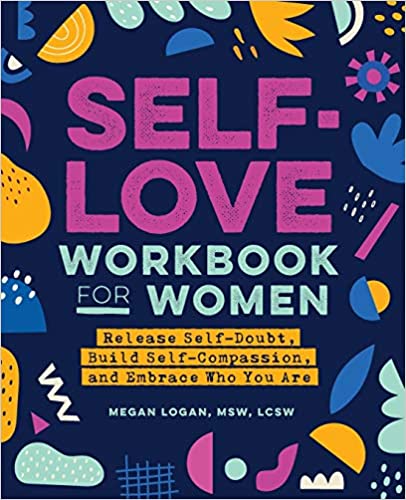
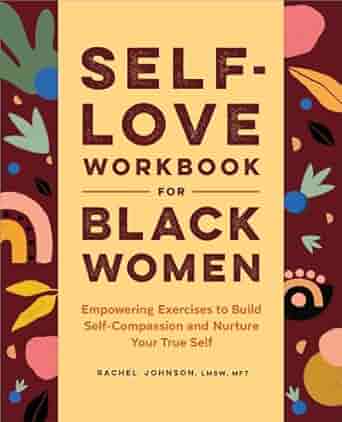
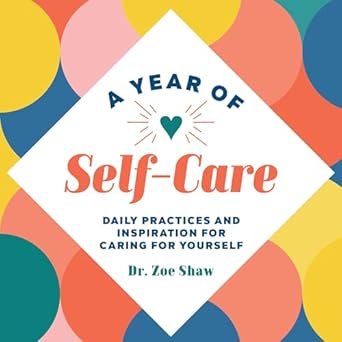
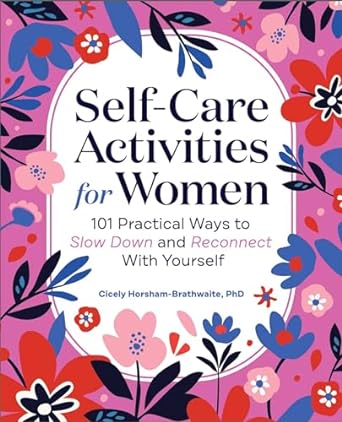








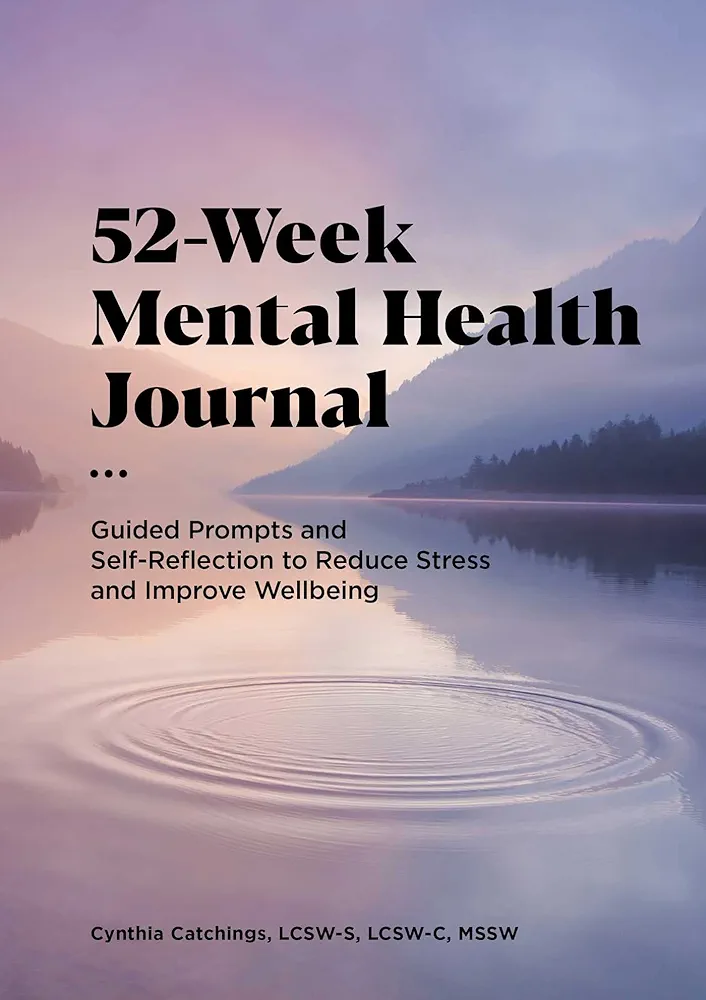








Leave a Reply